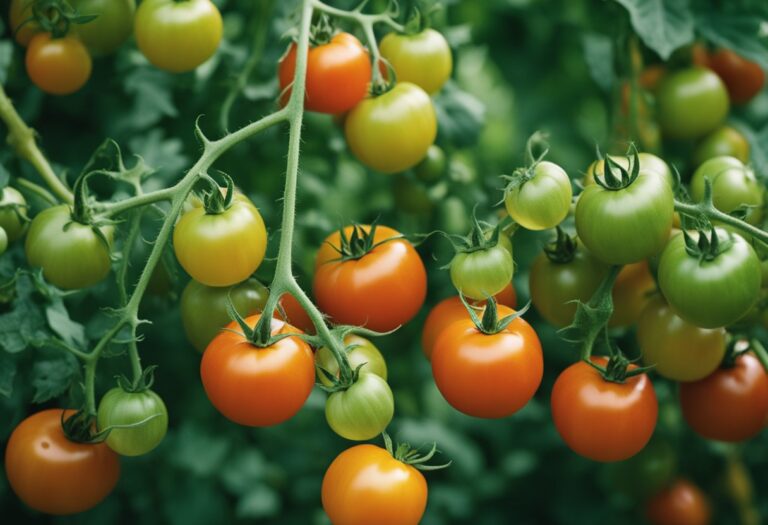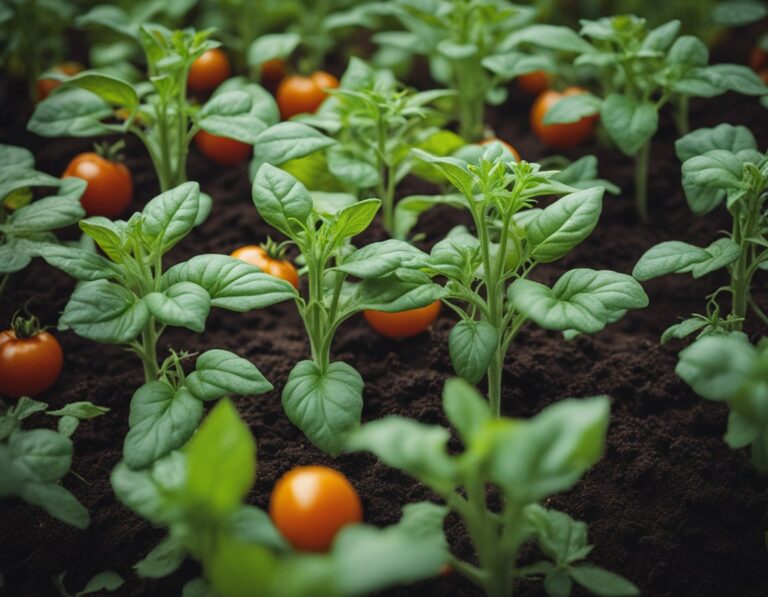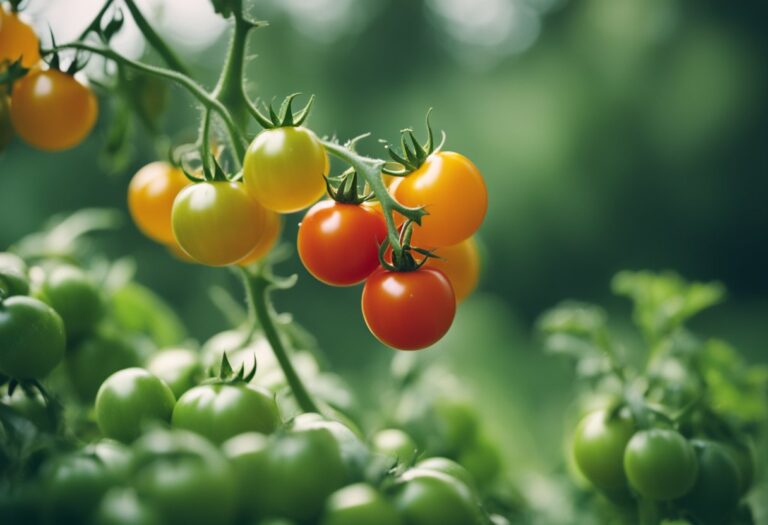Do Bears Eat Tomatoes? Exploring the Diet of Bears
If you’re a gardener, you know how much work goes into growing a healthy crop of tomatoes. From planting to watering to harvesting, it’s a labor of love. But what happens when a bear comes along and eats all your hard work? Do bears eat tomatoes? The answer is yes, they do.
Bears are omnivores, which means they eat both plants and animals. While their diet varies depending on the season and location, they will eat tomatoes if they come across them. In fact, bears are known to raid gardens and orchards in search of food, and tomatoes are one of the many crops they will eat.
So what can you do to protect your tomato garden from bears? There are several strategies you can use, from installing fences to using bear repellents. By taking the necessary precautions, you can keep your tomatoes safe from hungry bears and enjoy the fruits of your labor.
Key Takeaways
- Bears are omnivores and will eat tomatoes if they come across them.
- Bears are known to raid gardens and orchards in search of food.
- You can protect your tomato garden from bears by using strategies such as installing fences and using bear repellents.
Do Bears Eat Tomatoes?
If you’re wondering whether bears eat tomatoes, the answer is yes, but it’s not a common part of their diet. Evidence suggests that bears are opportunistic eaters and will consume a wide variety of foods, including fruits and vegetables.
Evidence of Bears Eating Tomatoes
According to Chef’s Resource, bears may consume tomatoes if they come across them in the wild. While tomatoes are not a natural part of a bear’s diet, they are known to eat a variety of plant matter, including roots, tubers, berries, and nuts.
Factors Influencing Bears’ Consumption of Tomatoes
There are several factors that may influence a bear’s consumption of tomatoes. For example, bears that live near human settlements may be more likely to eat tomatoes that are grown in gardens or left out as garbage. Additionally, bears may be more likely to eat tomatoes during times of food scarcity, such as in the fall when they are preparing for hibernation.
Overall, while bears do eat tomatoes, it’s not a significant part of their diet. If you’re concerned about bears eating your garden produce, it’s important to take steps to prevent them from accessing your crops, such as by using electric fencing or other bear-proofing methods.
Protecting Tomato Gardens from Bears
If you live in an area with a bear population, it’s important to take steps to protect your tomato garden from these animals. Here are some effective deterrents and strategies to help keep bears away from your plants.
Effective Deterrents and Fences
One of the best ways to keep bears out of your tomato garden is to install a sturdy fence around it. Bears are excellent climbers, so make sure the fence is at least 8 feet tall and made of a sturdy material like metal or wood. Additionally, consider adding an electric fence to further deter bears.
Another effective deterrent is to use motion-activated sprinklers. These sprinklers will spray water when they detect movement, scaring away any bears that come near your garden. You can also try using noise deterrents like air horns or bells.
Understanding Bear Behavior to Prevent Encounters
It’s important to understand bear behavior to prevent encounters with these animals. Bears are attracted to the smell of food, so avoid leaving any food scraps or garbage near your garden. Additionally, bears are most active at dawn and dusk, so try to avoid working in your garden during these times.
If you do encounter a bear in your garden, it’s important to stay calm and avoid startling the animal. Slowly back away from the bear while making noise to let it know you’re there. If the bear approaches you, try to make yourself look bigger by standing on your tiptoes and raising your arms. Finally, if the bear attacks, fight back with everything you have.
By taking these steps to protect your tomato garden and understand bear behavior, you can help prevent encounters with these animals and keep your plants safe.
Frequently Asked Questions
What types of food do bears typically consume?
Bears are omnivores, which means they eat both plants and animals. Their diet can vary depending on the season, location, and availability of food. In general, bears consume a variety of foods such as berries, fruits, nuts, insects, fish, and small mammals.
Can bears include vegetables in their diet?
Yes, bears can include vegetables in their diet. They have been known to eat roots, tubers, and bulbs of various plants. However, they are not strictly herbivorous and require a balanced diet that includes both plant and animal sources.
Are tomatoes a part of a bear’s natural diet?
Tomatoes are not a natural part of a bear’s diet. While bears may consume tomatoes if they come across them in the wild, they do not actively seek them out. Additionally, the leaves and stems of the tomato plant contain toxic compounds that can be harmful to bears if ingested in large quantities.
How much food does a black bear eat daily?
A black bear can consume up to 20,000 calories per day during the fall when they are preparing for hibernation. However, their daily caloric intake varies depending on the season and availability of food.
Do bears pose a threat to vegetable gardens?
Yes, bears can pose a threat to vegetable gardens. They are attracted to the smell of ripe fruits and vegetables and may raid gardens in search of food. To prevent bears from entering your garden, you can use electric fencing, bear-resistant containers, or other deterrents.
What is considered to be a bear’s favorite food?
Bears have a diverse diet, but some of their favorite foods include berries, nuts, fish, and insects. They also have a strong sense of smell and are attracted to the scent of food, which can lead them to raid garbage cans and other sources of human food.



